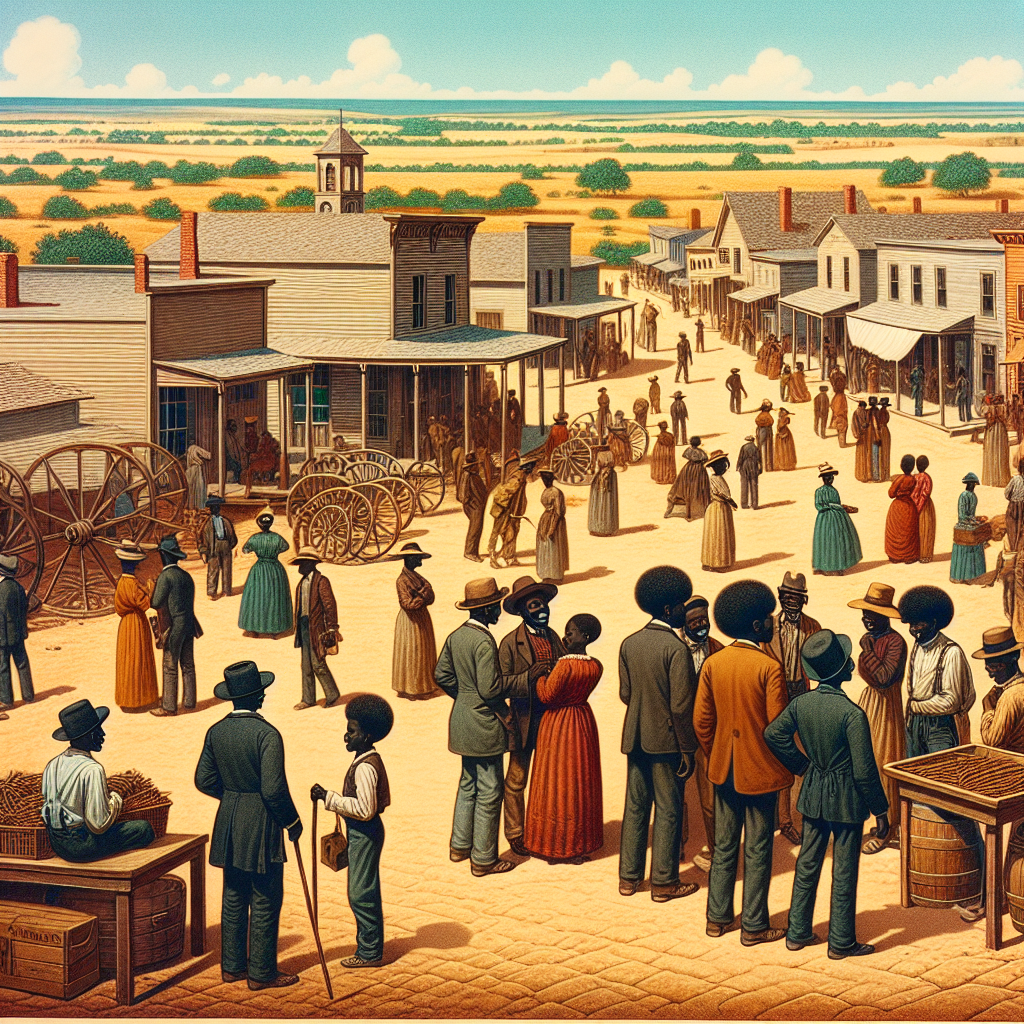Unmasking the Legacy of All-Black Towns in Early Oklahoma
“A people without the knowledge of their past history, origin, and culture is like a tree without roots.” Ever heard that one? You can thank Marcus Garvey for laying it out so beautifully. And what better way to branch out than by taking a stroll through the rich and often ignored legacy of all-Black towns in early Oklahoma? After the Civil War, while the rest of America was playing a grand old game of racially charged musical chairs, a group of determined African American pioneers decided to strike out on their own. They sought land, opportunity, and the chance to create a life that didn’t include dodging the societal ills thrown at them by, you guessed it, the establishment. Let’s dive into the origins, cultural contributions, and ongoing relevance of these communities. Spoiler alert: they’re not just a footnote in history books!
Historical Context of All-Black Towns in Oklahoma
Post-Civil War Challenges
After the Civil War ended, things weren’t exactly rainbows and butterflies for African Americans. Sure, chains were broken, but guess what? The struggle was far from over. Enter systemic oppression and a sweet little thing called poverty, which didn’t just pack its bags and leave. With doors slammed shut by discriminatory policies, many sought relief in the West—a kind of DIY opportunity zone, if you will. Understanding this context is like knowing the secret sauce behind the explosion of all-Black towns in Oklahoma.
The Land Run of 1889 and Its Significance
Then came the Land Run of 1889, a race that could make even Olympic sprinters sweat. Throngs of people lined up to claim land in what used to be Indian Territory. But hold the phone—this wasn’t just about white settlers; early African American pioneers threw their hats into the ring as well, determined to build their very own oases of hope and community, far away from the gloom of racial oppression.
The Birth and Development of All-Black Towns
Prominent All-Black Towns and Founders
Look around, and you’ll find gems like Boley, Langston, and Rentiesville, shining examples of resilience and creativity. These towns were birthed by visionary leaders like R.J. McCoy and John Brown, who had the audacity to dream of economic independence and cultural in-your-face identity. These weren’t just towns; they were transformative spaces where Black folks could come together to create something they could call theirs.
Economic and Community Growth
As these towns blossomed, they became buzzing hubs of education, commerce, and self-determination. Schools and churches weren’t just buildings; they were the lifelines of the community, teaching knowledge and nurturing spirit. Local governance empowered residents to create change, showcasing that these communities weren’t just surviving but thriving. Talk about flipping the script!
Cultural Legacy of All-Black Towns
Emphasis on Education, Arts, and Spirituality
Education? That was the bedrock of all-Black towns. They recognized early on that knowledge was power—who would’ve guessed? Churches served as community anchors, offering a sense of belonging wrapped up in spirituality and, dare we say, a little bit of sass—because who doesn’t need that? This cultural fabric contributed to a resilience that would boggle the mind, proving that the heart of these towns beat strong.
Influential Figures and Cultural Celebrations
Let’s not forget the trailblazers who emerged from these towns. Civil rights activists and educators made significant strides for future generations, reminding everyone that change isn’t just a hashtag but a whole movement. Events like Langston University’s “Founder’s Day” are celebrations so vibrant they could bring even the dullest textbook to life. These celebrations symbolize pride—a reminder that these communities didn’t just exist; they flourished.
Challenges Faced by All-Black Towns
Societal Pressures and External Challenges
But, like every good story, it wasn’t all sunshine and rainbows. These towns faced societal pressures, including systemic racism and other hurdles thrown their way by those who’d rather keep the status quo. The world outside wasn’t always kind, and violence against these communities often loomed large.
Resilience Through Community Initiatives
The knee-jerk response? Resilience! Residents banded together, forming networks and communities that showcased an indomitable spirit. This wasn’t just survival; it was a statement, an assertion of power in the face of adversity. The stories coming out of these towns are full of ingenuity—talk about a #BlackExcellence highlight reel!
Modern Relevance and Preservation Efforts
Importance of Historical Preservation
Fast forward to today, and you’d think we’d have learned from the past. Fortunately, there are ongoing efforts to preserve the vibrant history of these all-Black towns. With historical markers, museums, and dedicated organizations, the legacies of these communities aren’t just being remembered; they’re being celebrated.
Continuing Impact on Racial Discussions
And guess what? The narrative of all-Black towns continues to power today’s conversations on race and identity. Modern leaders and cultural icons regularly pull from this rich history as they push for equity and social justice. Recognizing these towns isn’t just a fun trivia fact; it’s essential for understanding the complexities of the Black experience in America.
Conclusion
The all-Black towns in Oklahoma are more than just historical oddities; they are vital threads in the American tapestry. So, let’s dig deeper, learn, and celebrate these remarkable communities. By shining a light on their histories, we not only enrich our understanding of America but also confront the ongoing societal issues that demand our attention.
For those curious enough to take the next step, seek out books, documentaries, and articles focused on the history of Black towns in Oklahoma. Don’t just learn—invest in local historical societies that are dedicated to preserving this essential legacy. After all, history isn’t just about what happened; it’s about knowing what we’re fighting for.



0 Comments